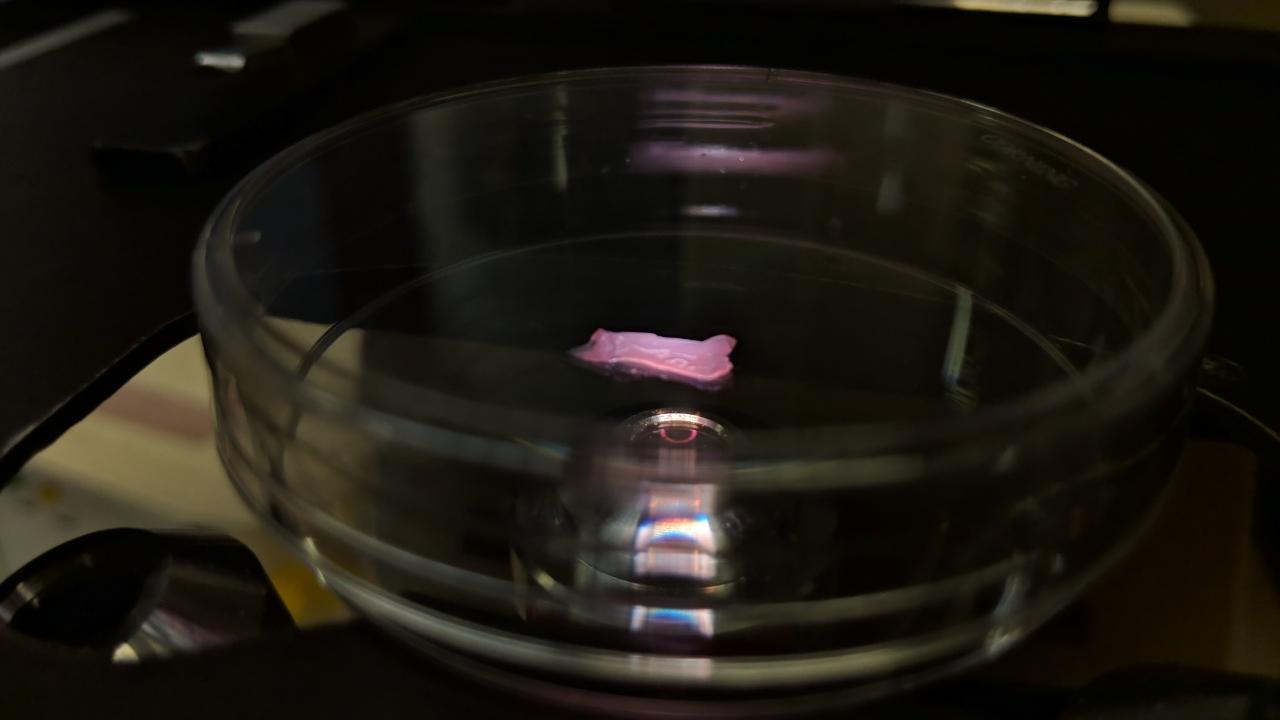
Lab-Grown Meat Focus of UC Davis Study and USDA Grant
Research will center on viable cell lines, cell cultivation and biomaterials to create sustainable food sources

For the first time, the U.S. Department of Agriculture is funding research on how to grow animal meat from harvested cells in a laboratory, and UC Davis will play a significant role.
USDA’s National Institute of Food and Agriculture has awarded a $10 million grant to advance the field of cellular agriculture.
Tufts University is the lead and UC Davis will evaluate what structures are needed to grow cells, as well as develop sensors that measure what conditions are needed for that growth.
“It’s a shift in terms of our view of food production and processing,” said Nitin Nitin, a professor in the Departments of Biological and Agricultural Engineering and Food Science and Technology. “It’s a big step for our team, the USDA and science in general to think about.”
Funding for Nitin’s work totals about $1 million of the grant.
Broad Team from Six Universities
A wide range of experts from six universities are participating in the five-year grant. Among those involved: a molecular biologist, biomedical engineer, environmental scientist, food engineer, sensory expert and flavor chemist.
The goal is to enhance food sustainability, nutrition and security while reducing environmental and resource burdens.
Innovative solutions in food production are necessary.
The global population is expected to hit 10 billion by 2050 and with that growth comes increased demand for food, including the need for a 100% increase in meat production, according to a project grant filing.
Dwindling land and environmental resources, plus concerns over water use, greenhouse gas emissions and climate-related agricultural loss complicate the problem.
Meat grown from cells presents a possible sustainable solution with less environmental harms, Nitin said.
“We’re not trying to replace conventional agriculture in any way,” Nitin said. “We’re trying to build scientific knowledge that may enable society to evaluate cellular agriculture.”
Work to ID Feasibility, Challenges
This grant is aimed at evaluating the feasibility of lab-cultivated meat and identifying the technology challenges and potential problems. Consumer attitudes and economic viability will also be examined.
A long-term goal is to develop new food production models that can increase agricultural production by 40% while cutting the environmental footprint in half. That includes developing a sustainable stem-cell line that can be scaled up without using animal-derived nutrients such as serum.
Nitin will focus on using plant-based materials to build a scaffolding on which cells can attach, grow and differentiate to form muscle and fat cells, as well as developing the sensors to evaluate growth and differentiation. Scaffolding is like the anchor for cells.
Other researchers will harvest cells, likely from fish to start as a base. From there Nitin will work to see what scaffolding structures best represent what the cells need for growth and development.
“They need something to attach on so they can find a home for themselves to both grow and differentiate,” Nitin said. “It’s almost like growing an organ outside of a body.”
Sensing the Best Conditions
Up next will be ensuring the cells that develop contain proteins, nutrients and other components to serve as a food source. The finished product must also look like and taste like meat.
The type of culture media that promotes growth is also a priority. Nitin will focus on developing sensors to measure the conditions needed for optimal cell growth and differentiation.
“We want to know what conditions can enable cells to grow and also transform to form muscle and fat cells outside the body,” he said.
Researchers from Massachusetts Institute of Technology, University of Massachusetts, Virginia Polytechnic Institute and State University and Virginia State University are also conducting research in this area.
“I think it’s the beginning of a long journey for us,” Nitin said.
Media Resources
- Nitin Nitin, Departments of Biological and Agricultural Engineering and Food Science and Technology, nnitin@ucdavis.edu
- Emily C. Dooley, College of Agricultural and Environmental Sciences, cell 530-650-6807, ecdooley@ucdavis.edu